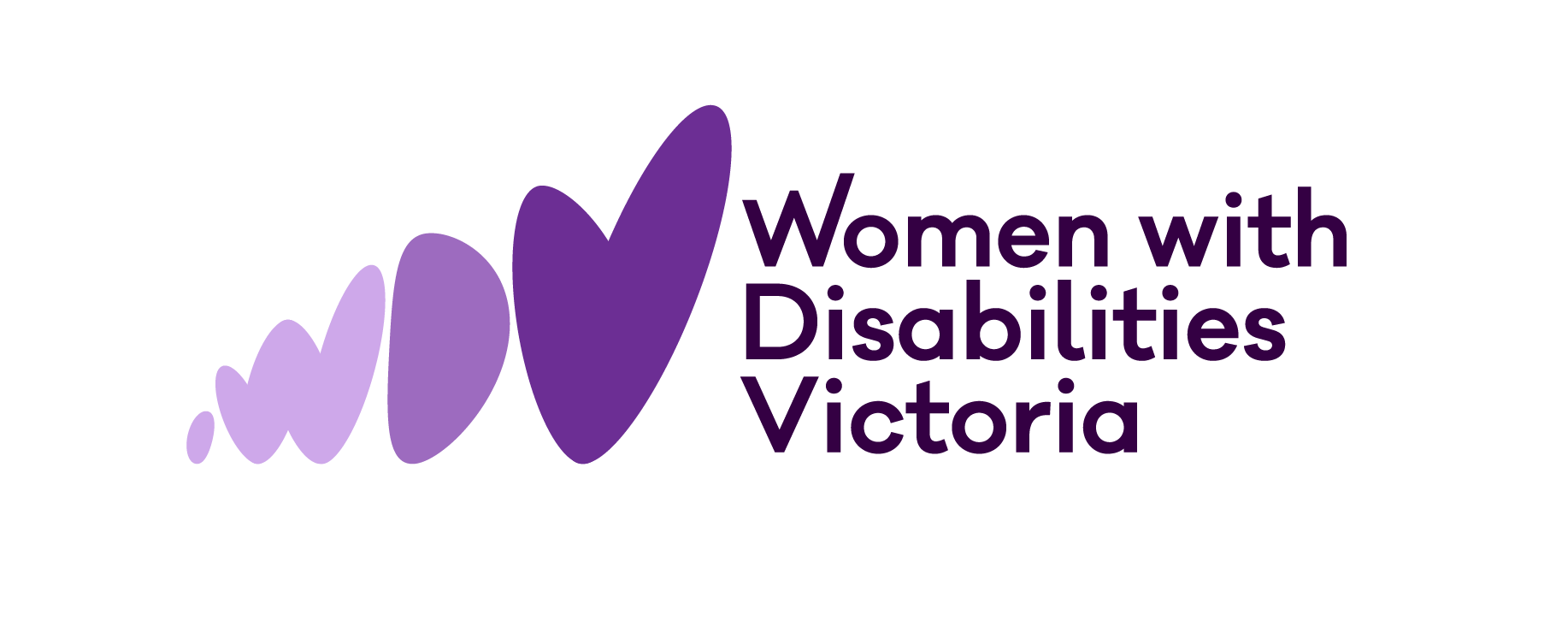16 Days of Activism 2020
In 2020, we ran a social media campaign for the annual international ‘16 Days of Activism against Gender-Based Violence’ campaign. In line with Respect Victoria’s theme for the campaign: Respect Women: Call it Out, we focussed on increasing respect towards women with disabilities and encouraged members of the public to embrace respectful behaviours and actions.
Respect Women: Call it Out
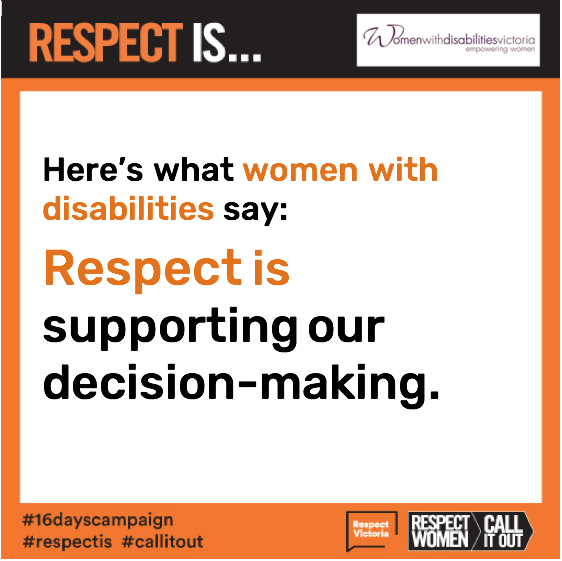
Explanation:
Women with disabilities have a right to make decisions about every area of their life. Women with disabilities have a right to make decisions about parenting, sex, medication, relationships, friendships, what we want to eat or drink, personal care, health care, who we want to live with, what we spend our money on, where we want to go. Supporting our decision-making means providing access to important information about our particular situation, giving us the time we need to understand our options, and taking a back seat so we can drive our own agenda.
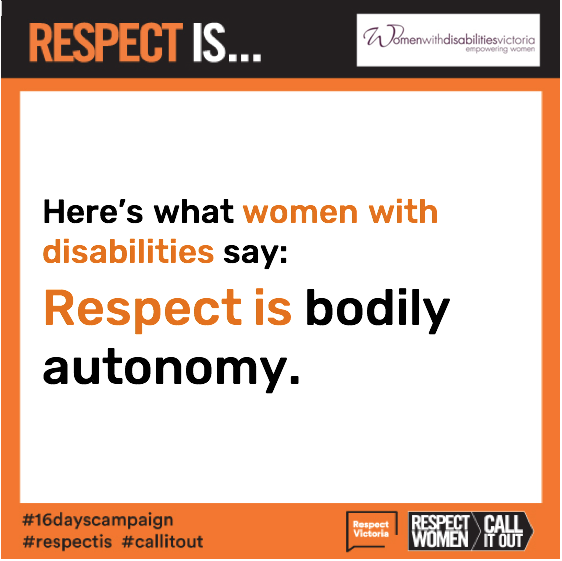
Explanation:
Women with disabilities have a right to decide what happens to our bodies, including what clothes we wear, how we want to do our hair, what medical procedures we undertake, and how we want to move through the world. Nobody can touch our bodies without our consent – not healthcare workers, not friends, not lovers, not family, not a friendly person on the street trying to help. Ask us before touching us or helping us, and accept if we decline assistance.
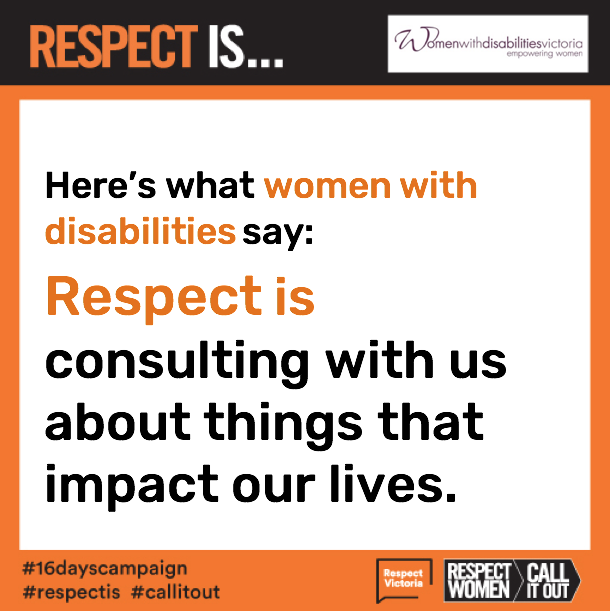
Explanation:
No person, organisation or government should be developing or implementing policies or practices that impact women with disabilities lives without first hearing from us about our needs, perspectives, insights, solutions, concerns and desires. “Nothing about us without us” means centering our experience.
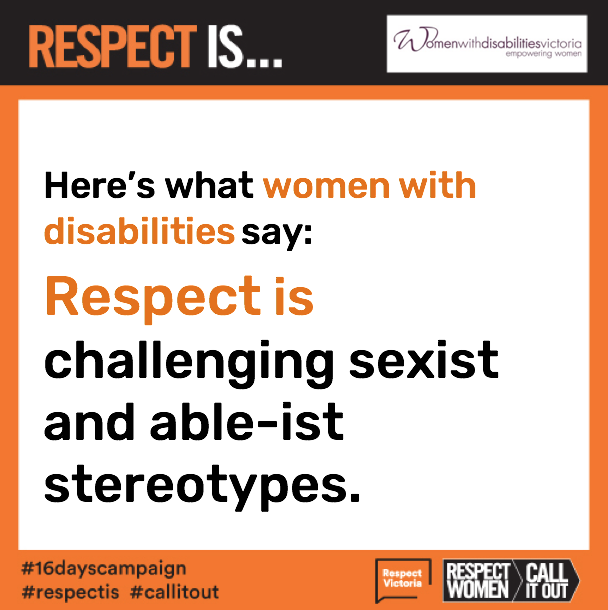
Explanation:
Sexism and ableism are not always overt acts of aggression. Question if there are subtle ways that women with disabilities are being excluded, demeaned or made assumptions about, and speak out when you see it.
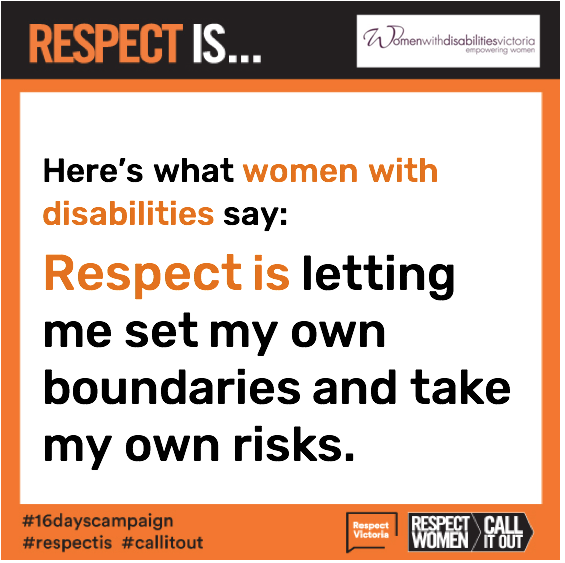
Explanation:
When well-intentioned support workers, carers, employers or family members adopt risk-averse practices, it can increase women with disabilities’ dependence, erode self-esteem, lead to missed opportunities to learn new skills, and lead to isolation. Risk can never be fully eliminated. Adopt a positive risk attitude and enable supported risk-taking.
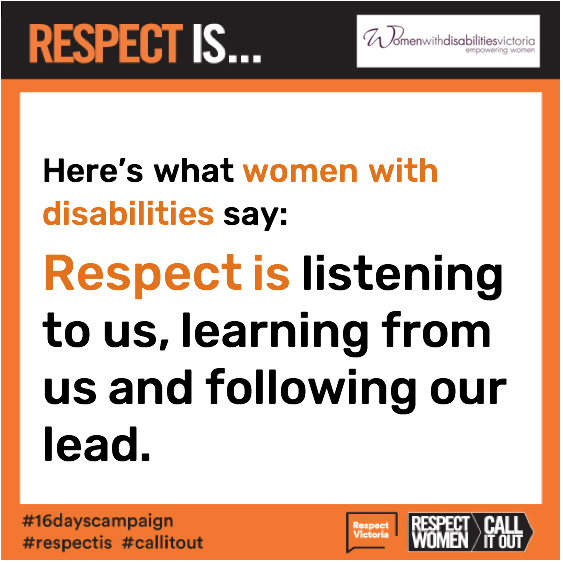
Explanation:
Women with disabilities can be and are leaders. We have a unique perspective of the world, meaning that sometimes we see solutions that others cannot.
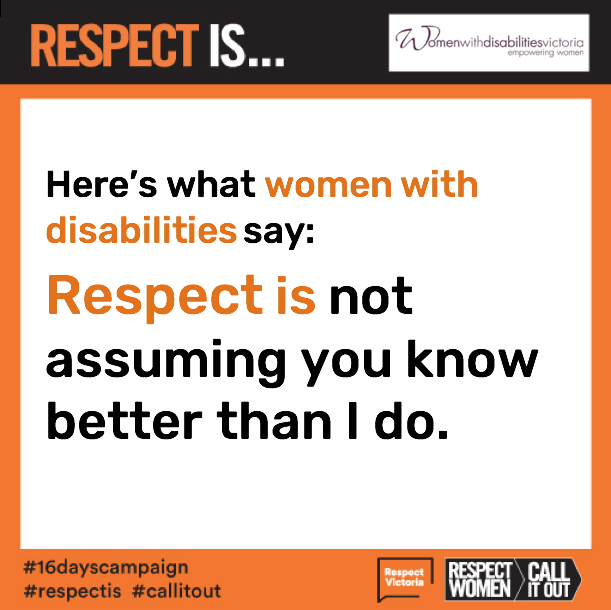
Explanation:
Women with disabilities are the experts of our own lives and our own experiences – so listen to us.
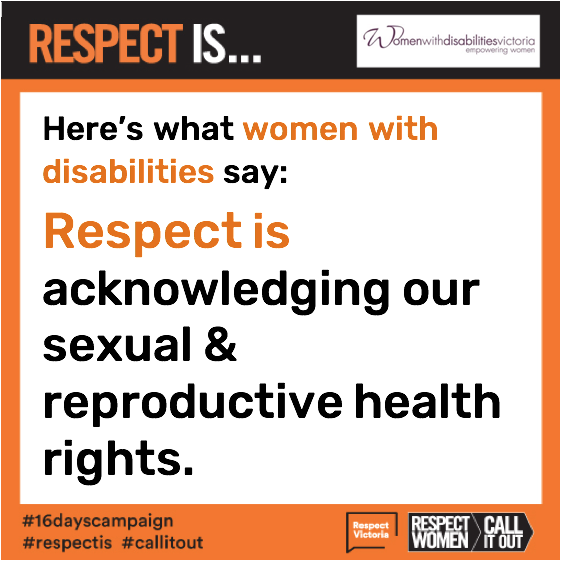
Explanation:
Women with disabilities can make our own choices about if and when we have sex, if and when we use contraception, and if and when we want to become parents. We have a right to sex-positive respectful relationships education and accessible information and services.
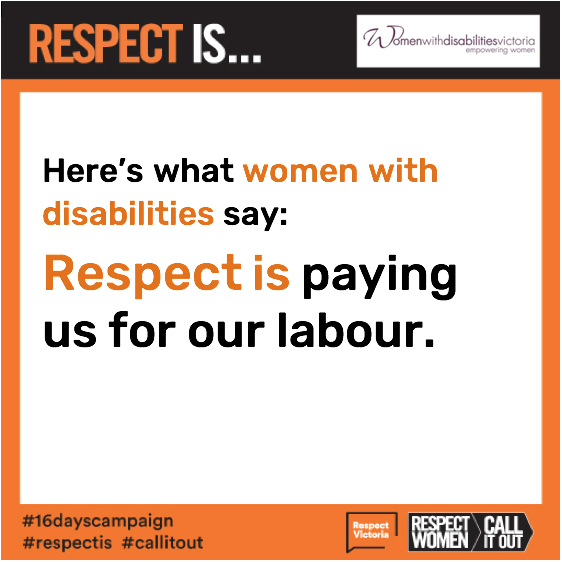
Explanation:
Women with disabilities are subjected to both the gender pay gap and the disability pay gap and are more likely to be living in poverty. Yet women with disabilities are also frequently expected to volunteer their time for free on committees, boards and advisory groups as a strategy to bring a “disability perspective” to an organisation or under the pretence that we will “gain experience” from our unpaid work. Women with disabilities deserve fair pay.
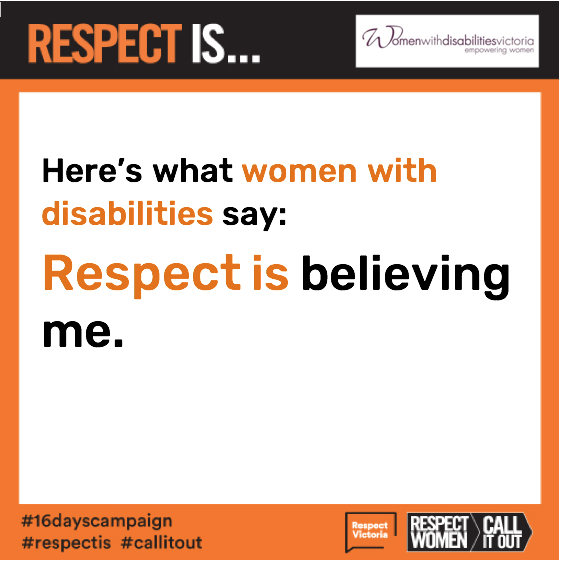
Explanation:
Women with disabilities are frequently dismissed or have their complaints ignored. Believe us when we say we have a disability (even if you can’t see it). Believe us when we say we have pain. Believe us when we say that we have thought through a decision and weighed up the risks. Believe us when we say we don’t want help. Believe us when we say we have been mistreated or been made to feel uncomfortable. Believe us when we disclose that we have been abused.
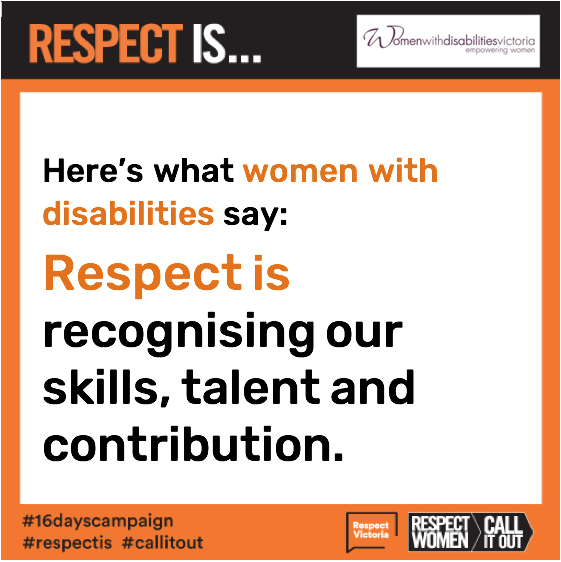
Explanation:
Refocus attention to what women with disabilities can do instead of what you think we cannot do, and don’t be surprised when we exceed your expectations.
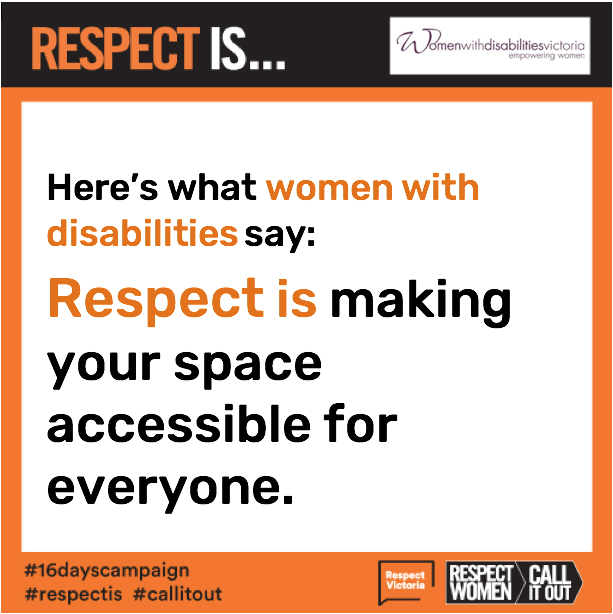
Explanation:
Accessible spaces are more than just ramps, rails and toilets. Universal design principles matter a lot, but the attitudes of people are just as important to ensure accessibility. Flexibility and willingness to make person-centred adjustments and cultural safety are just as important to ensuring a space is accessible and welcoming.
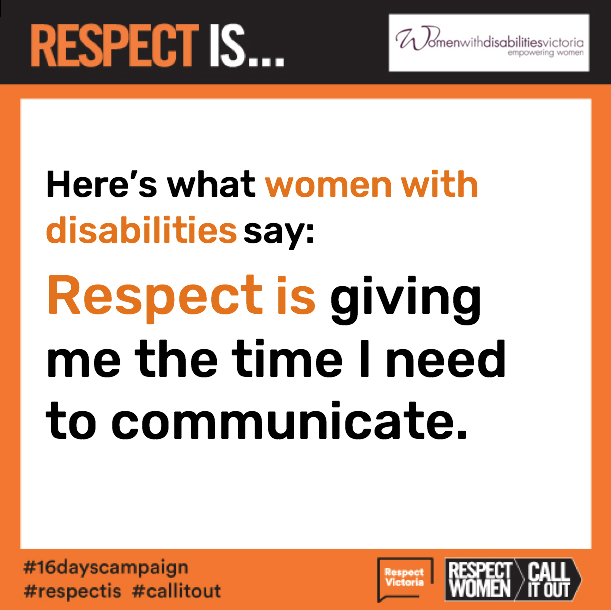
Explanation:
Be patient (don’t rush the conversation). Speak in your usual tone (unless you are asked to speak up). Speak to me (not about me to my carer or family member). Check if I need equipment or an interpreter to communicate.
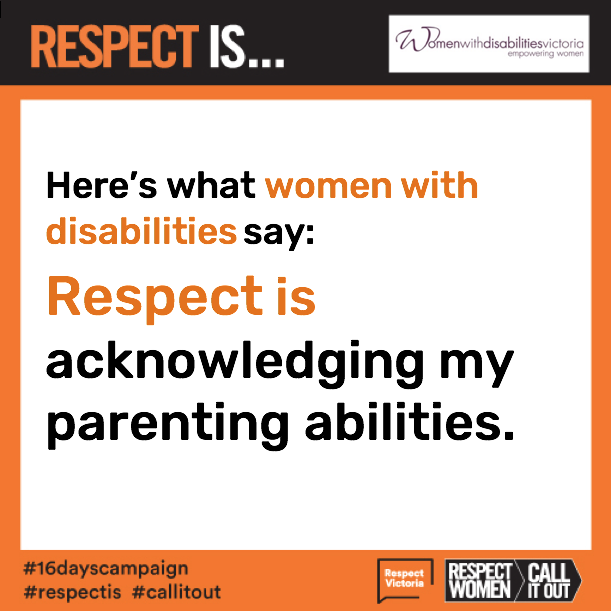
Explanation:
Women with disabilities are frequently discouraged from becoming parents. When we become parents, we are frequently assumed to unable to provide for our children. Like any job, women with disabilities can thrive in a parenting role when we are given the support, advice, advocacy and equipment we need.
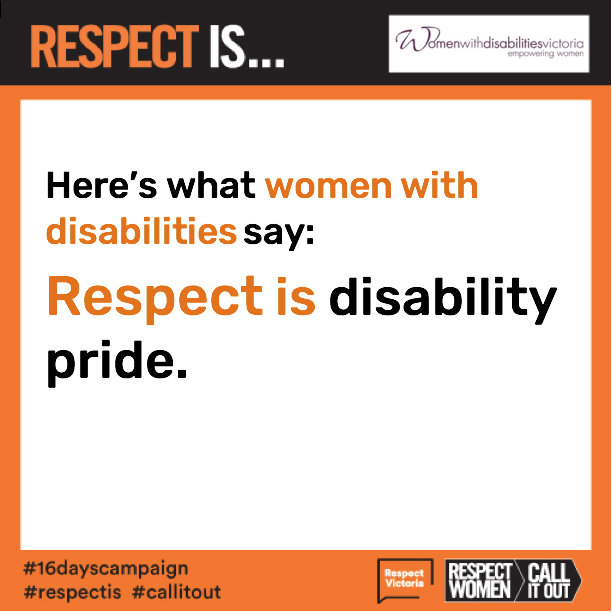
Explanation:
Women with disabilities are proudly visible and live our lives in plain view. We have developed our own culture, with our own jokes, our own ways of communicating,
Celebrating disability is about more than just inclusion. It’s about understanding that women with disabilities develop and drive our own culture, one where we are proudly visible, where we know our own worth and where we live in plain view. We have our own jokes, our own ways of communicating, our own visions of the equitable world we want to live in. We have sub-cultures within disability culture; we are diverse. We aren’t just needing to be included in society, rather we understand ourselves as a driving force.
